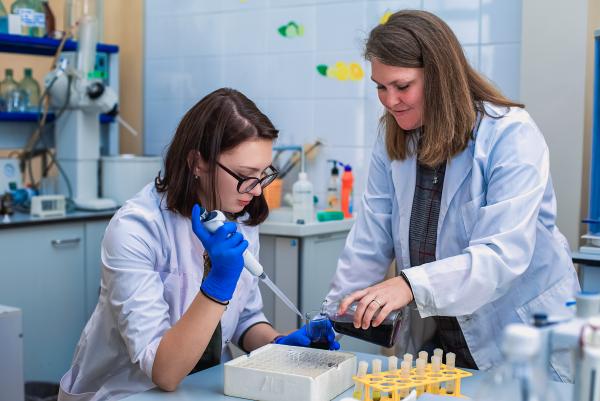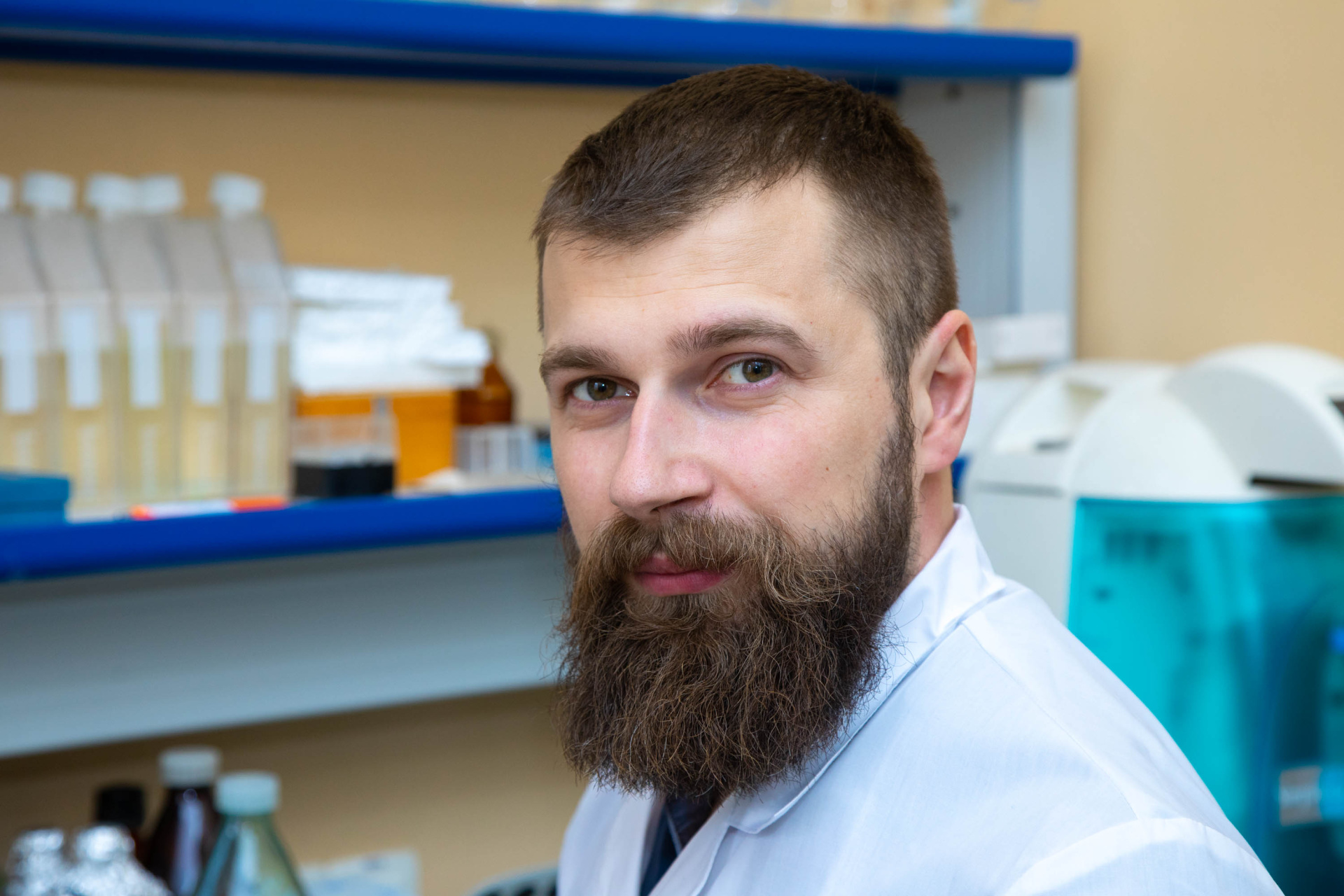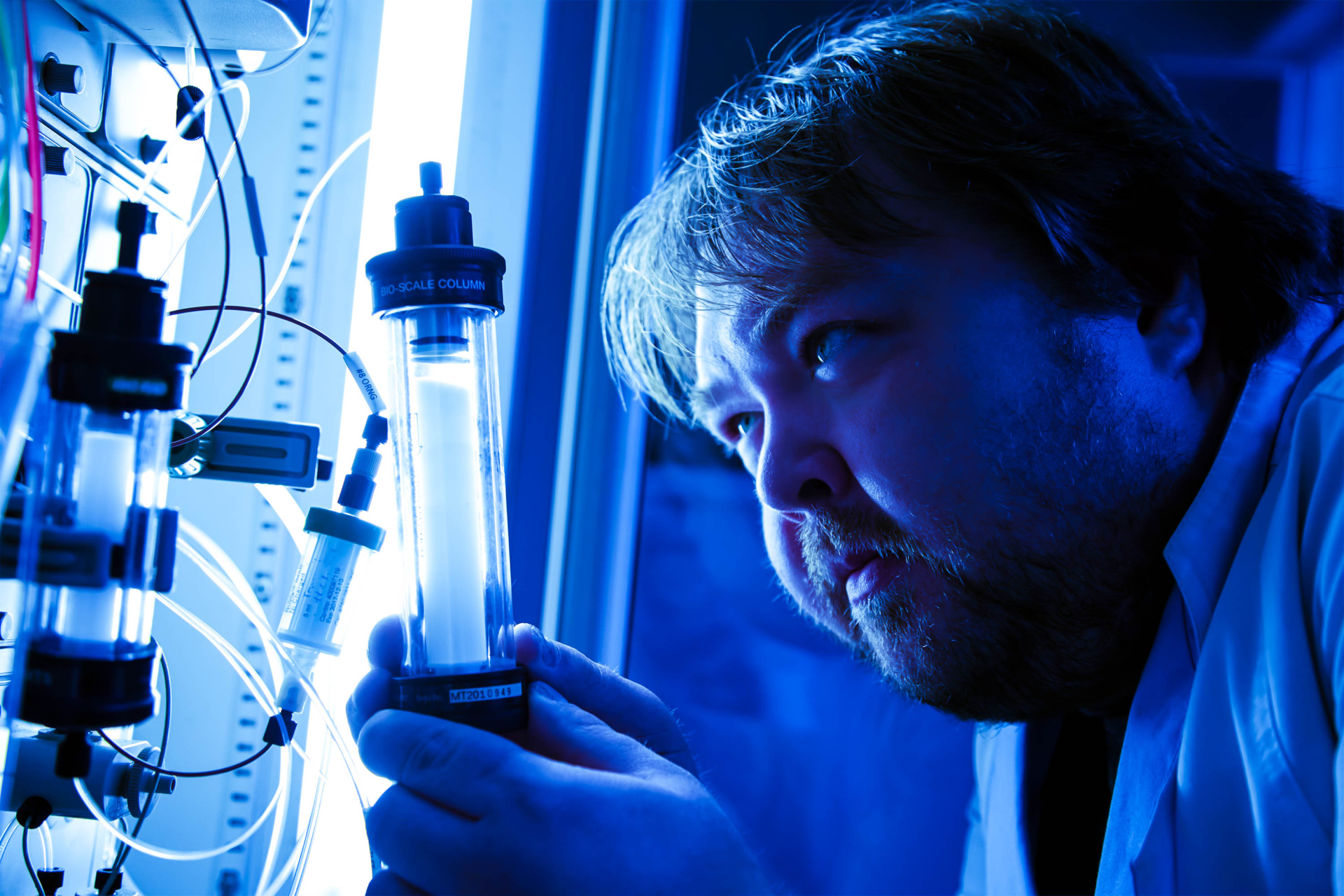
Specialists in biomedical engineering work in different areas such as agriculture, ecology, genetics and many more. Their work results in gradual improvement of living standards around the globe.
Pavel Feduraev, Ph.D. in Biology, Director at the IKBFU Higher School of Living Systems told Kantiana.ru about the new program.

— The biomedical engineering program has been taught at the university for quite a while, what were the grounds for revising it now?
The progress never stops, so neither do we. Biotechnology, medical technologies, genetic editing technologies, bioinformatics are developing at a very fast pace, so there was a need to modernize, "rebuild" the program to meet certain realities of the industry. And it turned out to be quite successful. We have reorganized the program for it to meet requirements set by the scientific community, so that from the very first days after enrolling on it the students learn how to do the magic in the lab. The students will be assigned to research groups working on their diploma programs under the supervision of an experienced curator.
The theoretical part of the program has also been improved. In the past, training was organized in such a way that bioengineering and bioinformatics were constantly intertwined up to the fifth year. Now we have "reassembled" the program so that students study basic disciplines for the first three years — they get skills in bioengineering in labs and develop competencies in bioinformatics. And by the fourth year they can decide on their further educational track and go into narrower specializations of bioengineering or bioinformatics, thus polishing their skills during the last two years of study. At the same time, if they wish, they can go in both directions at the same time — we provide such an opportunity.
A professional today has to have a lot of practical expertise in their sphere to be able to fit the modern science. We plan on engaging into partnerships with companies using molecular biotechnologies in their job practices to enhance our students’ practical training. For example, agreements may be reached with one of the largest Russian biotechnology companies that specializes in finding therapeutic approaches to treat rare diseases. There are many companies interested in creating joint projects with IKBFU, as we are the main supplier of professionals to them and we have all the necessary equipment to provide adequate training. We are interested in the cooperation because this will allow our student to adapt to the job market requirements quicker.
— The course takes five years to complete, will it be considered a higher education program?
— Yes, this is a specialist degree program with five year-long science-oriented education. Then those of them who choose science as their life-long activity can go to the IKBFU graduate school. The university, by the way, provides a unique research platform. In general, the graduates can find their vocation in various fields of bioengineering application — starting from agriculture and ending with medicine: in large biotechnology companies in Russia, engaged in the development of approaches to therapy related to rare diseases or diseases with a pronounced genetic nature; as geneticists in IVF clinics; in agricultural corporations — to engage in activities related to developing plant species, maintenance of genetic databases, etc. In other words, the fields of application are wide, and the job market is constantly growing.
Biology is the science of the new era, which may sound too optimistic but that’s what it is. Today we have tools not only to describe biological processes but to adapt them to our needs. The population keeps on growing, requiring more resources and as Russia is a northern country, bio productivity of soils is quite limited. And improving it is possible thanks to genetics research and this is the goal that scientists of the future will achieve.

— Do you mean genetic modification?
— In some terms, yes. And we should not be afraid to advance in this direction. The most well-known example of successful genetic modification is the invention of insulin. People with type one diabetes need insulin therapy, and virtually all insulin is now made using genetically modified bacteria. That is, it is a bacterium that is inserted with a gene encoding a molecule of insulin protein to produce human-compatable insulin. In addition, one of the activities of bioengineers is passportization of plant varieties and species. For example, in the past, seed material for potato cultivation was imported from abroad, most often from Holland. Now there are certain tensions with supplies, so it was necessary to look for independent methods and approaches. When a particular potato variety is selectively bred, it is necessary to passport it — in fact, to perform genetic screening. This is a set of special molecular biology methods that allow us to say that we have obtained a new variety of a plant.

— What do specialists in bioinformatics do?
— This is a relatively new scientific sphere, it’s only appeared in late 1990s thanks to the new equipment that allowed researchers to study a huge amount of experimental data, and so there was a need to systemize and analyze all that data. This is especially important to sequencing technology. In essence, it is reading the sequence of nucleotides in DNA or RNA molecules, or, if it is sequencing a protein, it is determining the sequence of amino acids. There are about 3 billion nucleotide pairs in the human DNA. In order to systematize such sequencing data, to compare, to identify differences, we need to use digital tools.
The IKBFU Higher School of Living Systems will be located in a new campus building, that will be constructed by 2025. And the students enrolled at the new bioengineering program will be completing their education in the new campus.
User profile for student
User profile for student
I give consent to the processing of the personal data provided, with Personal Data Processing Policy acquainted
Confirm consent